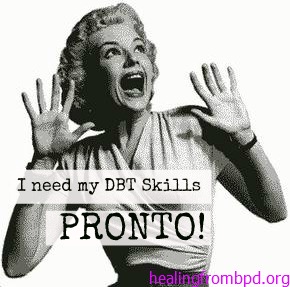-
MySpace Suicide
I recently read about the suicide of 13-year-old Megan Meier, who, according to press reports hanged herself in her room after receiving “mean” and “insulting” messages from another MySpace user – one that was pretending to be her friend. ABC News Report of Suicide Story I decided to use this report to point out something important about this story. What her parents have gone through in this case is monstrously painful and I don’t, by any means, take up this tragedy to criticize her mother. I can only imagine the amount of pain and anguish her mother and father must be going through. I know if one of my children…
-
BPD, lying and the nature of truth
One of the most searched-upon subjects in this blog (and talked about in our ATSTP Google Group) is the subject of lying by someone with BPD. The nons are confused by untruthfulness on the part of someone with BPD and wonder how the person with BPD can have any credibility or trustworthiness when, clearly, they continue to tell bold-faced lies. In my response to a recent poster within the ATSTP group, I recently made a new revelation about truthfulness and lying by someone with BPD. I have long said that someone will lie when telling to truth would cause more emotional suffering than lying would. However, that statement seems to…
-
Using DBT Skills to Help the Relationship
The danger of seeing validation as an end-all, be-all is clear from our last few messages. In DBT’s Interpersonal Effectiveness section there are (at least) 3 skills that are separate and distinct. They are used in different circumstances and can be used in combination. They are: 1) GIVE 2) FAST 3) DEAR MAN GIVE is used to “keep the relationship” and can be used when OTHER people have strong feelings. The GIVE skills are: Gentle (Be) Interested (Act) Validate Easy Manner (Use an) FAST is used to keep you self-respect. THe FAST skills are: Fair (be) Apologies (no) Stick to values Truthful (be) Last, DEAR MAN is used to get…
-
Talking to someone with emotional issues
I actually wrote this message on WTO some time ago. I think I am going to post some of my “Best of” message postings from WTO and from ATSTP lists – after removing any personal information from other posters. I’ve posted so many messages I would be worth it (I think) to share some of that information to the Internet public at large through this blog. So here goes (the Best of #1): Actually, these communication methods work with anyone, anytime. They will work in normal communication and during “OZ” – and I am trying to always be in this mode. It is difficult and takes a ton of effort,…
-
SET Communication Skills and BPD
http://bpd.about.com/od/forfriendsandfamily/a/SET.htm When borderline personality disorder makes communication difficult, following the SET method may help. SET stands for support, empathy and truth. It was developed by Jerold J. Kreisman, MD and Hal Straus, the authors of I Hate You, Don’t Leave Me and Sometimes I Act Crazy. Why SET Works The symptoms of borderline personality disorder (BPD) can result in the BP asking for conflicting things or being unable to recognize that the another person cares for them, especially during times of stress. A person with BP may be unable to experience conflicting feelings at the same time, and tends to see things in black and white with very little shades…
-
Shame and Invalidation
Here’s a good site about invalidation: http://eqi.org/invalid.htm A quote: “Invalidation is to reject, ignore, mock, tease, judge, or diminish someone’s feelings. Constant invalidation may be one of the most significant reasons a person with high innate emotional intelligence suffers from unmet emotional needs later in life.(1) A sensitive child who is repeatedly invalidated becomes confused and begins to distrust his own emotions. He fails to develop confidence in and healthy use of his emotional brain– one of nature’s most basic survival tools. To adapt to this unhealthy and dysfunctional environment, the working relationship between his thoughts and feelings becomes twisted. His emotional responses, emotional management, and emotional development will likely…







